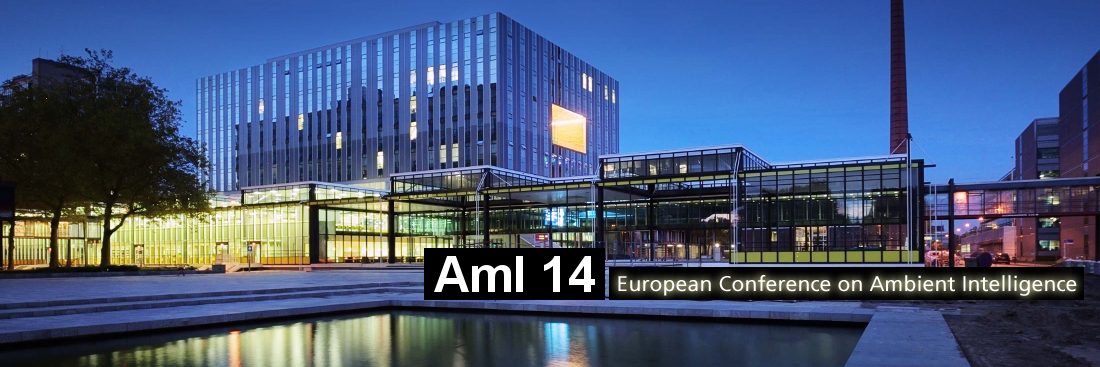Ambient Assisted Living (AAL)
Chair: Dr. Reiner Wichert, Fraunhofer IGD, Germany
AAL explores innovative Ambient Intelligence products, systems, and services, to meet the needs for an aging society aiming to provide universal access to the information society, empower people with special needs to participate in society and improve their quality of living.
Internet of Things (IoT)
Chair: Rob van Kranenburg, Coordinator of Activity Chain 8
Societal at IERC IoT Research Cluster of the EU Commission, Belgium
IoT research explores the technical infrastructure and application opportunities emerging when all objects in our surroundings are enhanced with machine-readable identifiers.
Ambient Play and Learning (APL)
Chair: Prof. dr. Ben Schouten, TU/e, Netherlands
APL explores applications of Ambient Intelligence to support learning, both formal, and informal, and supporting a healthy living.
Smart Buildings and Cities (SBC)
Chair: Dr. Elke den Ouden, TU/e, Netherlands
SBC research aims to explore and develop scenaria of our future built environment and intelligent lighting, where Ambient Intelligence applications are aimed at improving quality of living, addressing social issues, and improving usage of resources.
Intelligent Driving (ID)
Chair: Dr. Jacques Terken, TU/e, Netherlands
ID explores the applications of Ambient Intelligence in the car and in the road infrastructure to improve the efficiency and safety of road networks, to improve people's driving experience.
Data Science (DS)
Chair: Prof. dr. Emile Aarts, TU/e, Netherlands
DS combines contributions from computer science, mathematics, social sciences, design, to exploit the vast amount of data that can be collected about individuals, groups, and their activities.
Smart Healthcare and Healing Environments (SHHE)
Chair: Prof. dr. Evert van Loenen, Philips Research, Netherlands
SHHE explores applications of Ambient Intelligence to improve the quality of cure and care, including (but not limited to) outcomes, patient safety, patient and staff satisfaction, workflow and efficiency, flexibility and adaptability, remote diagnostics and way-finding.
Ambient Persuasion (AP)
Chair: Prof. dr. Panos Markopoulos, TU/e, Netherlands
AP explores Ambient Intelligence systems and services designed to influence attitudes or behaviors of its users for enhancing their health and wellbeing.
New and Emerging Themes (NET)
Chair: Prof. dr. Gregory O'Hare, UCD, Ireland
NET provides an opportunity for contributions on new and emerging themes that fall outside of the scope of the above mentioned themes.
|

